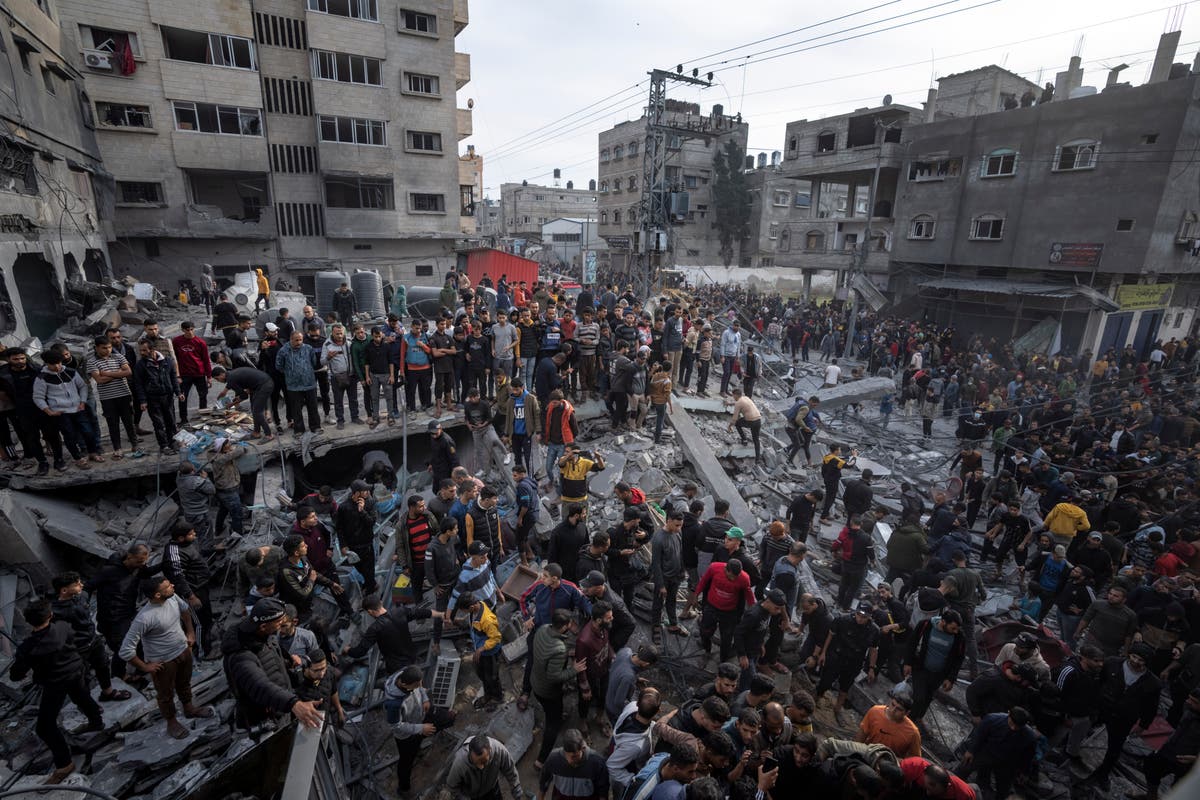
Israeli officials are preparing for a preliminary government decision AND‘s supreme court South Africa‘s claim that the war in Gaza Amounts to genocide against Palestinians.
The International Court of Justice (ICJ) should do this make a decision on Friday. The court in The Hague could possibly issue an order Israel to stop its military offensive in Gaza, which was triggered by a Hamas October 7 attack that killed 1,200 people and took another 240 hostage.
South Africa filed the case in December, claiming that the Israeli offensive – which health officials say has killed 25,700 people and injured tens of thousands more in the Hamas-controlled Gaza Strip – violates the United Nations Genocide Convention, signed in 1948 as a global response to the Holocaust.
A full decision on the genocide allegations is expected to take months or even years. Friday’s ruling addresses only South Africa’s request for emergency measures to protect Palestinians from possible violations of the 1948 convention. But an interim decision against Israel could open the door to possible international sanctions.
Decisions of the International Court of Justice, which deals with disputes between states, are binding and cannot be appealed, although the court has no mechanisms to enforce them.
Tembeka Ngcukaitobi, a lawyer at the Supreme Court of South Africa, said: “The evidence of genocidal intent is not only horrifying, it is overwhelming and irrefutable.”
(AP)
In a bullish statement on Thursday. Israel, the state that emerged after the Holocaust, expressed confidence that the ICJ would reject the allegations, which have repeatedly been described as unfounded. “We expect the ICJ to reject these specious and specious allegations,” said government spokesman Eylon Levy.
The 1948 Convention does not define genocide exclusively as the killing of members of a particular ethnic or national group. Crucially, the murders must be “committed with the intent to destroy this group.”
During two days of hearings on the case earlier this month, South Africa said Israel had gone beyond its intention to eradicate Hamas after the Oct. 7 attack and aimed to bring about the “annihilation” of the population of the besieged area. “The intent to destroy Gaza was encouraged at the highest levels of state,” South African Supreme Court lawyer Tembeka Ngcukaitobi told the court. “The evidence of genocidal intent is not only frightening, it is overwhelming and irrefutable,” Mr Ngcukaitobi said. “This killing is nothing short of the destruction of Palestinian life,” said Adila Hassim, another South African lawyer.
Post-apartheid South Africa has long championed the Palestinian cause, a relationship that began when the African National Congress’s fight against white minority rule was supported by Yasser Arafat’s Palestine Liberation Organization.
Tal Becker, the Israeli Foreign Ministry’s legal adviser, presented his defense, describing South Africa’s case as “a sweeping counterfactual description” that “grossly distorts” the situation on the ground.
“Israel is waging a defensive war against Hamas, not against the Palestinian people, to ensure that they do not succeed,” Becker said. “The key component of genocide, the intent to destroy a people in whole or in part, is completely missing. If there were acts of genocide, they were committed against Israel. Hamas seeks genocide against Israel.”
A spokesman for Prime Minister Rishi Sunak said earlier this month that Mr Sunak believed South Africa’s case was “totally unjustified and wrong”. US Secretary of State Antony Blinken described the case as “meritless”.
Israel often boycotts international tribunals and U.N. investigations because it has long viewed them as unfair and biased. But it sent a strong legal team to defend its position in court. Israeli Foreign Ministry spokesman Lior Haiat told Israel’s public broadcaster that the country had decided to appear before the International Court of Justice “because we are not guilty.”
Israeli Prime Minister Benjamin Netanyahu held a meeting in Tel Aviv on Thursday afternoon to prepare for possible scenarios following the International Court of Justice ruling. The meeting was attended by the Attorney General, the Minister of Justice, the Minister of Strategic Affairs, the Director of the National Security Council and a number of others. The New York Times also reported that more than 30 documents had been declassified by Israel to refute genocide allegations.
Part of the South African case involves public statements by Israeli leaders that are said to be evidence of intent to commit genocide. In response, the declassified documents are part of Israel’s argument and show that everything politicians have said in public has been overruled by executive decisions and official orders from the Israeli War Cabinet and the Israeli military high command.






Recent Comments